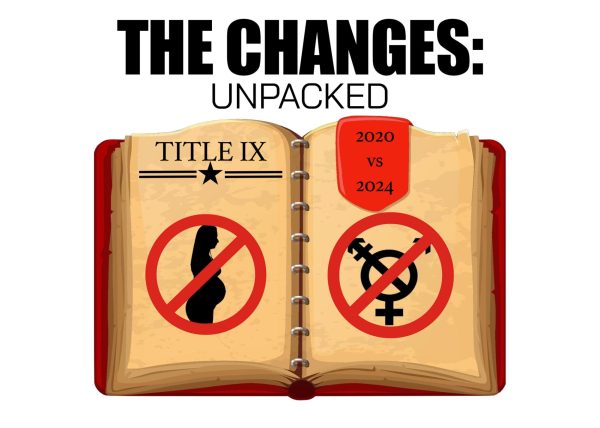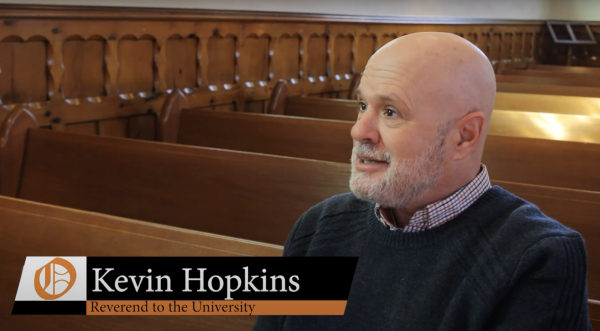Quest program creates speed bump for transfers
EDITOR’S NOTE: This story has been clarified from its original version to emphasize that while virtually all courses from other colleges transfer in to Baker as elective credit, many of these transfer courses cannot be used to fulfill Quest requirements.
Many Baker students agree that the university does not do things the same way as most other schools in terms of general education courses. But what about students who transfer from another university? These students have experienced pros and cons of transferring during their college careers.
“Transferring here was different because of the Quest and Salon programs,” senior Justice Berry said. “It doesn’t make it easy being a senior taking those [general educations courses] again.”
Berry, originally from Gardner, transferred from Indiana State University to play football.
The biggest differences for Berry are the Quest and Salon courses and the class sizes. At Indiana State, he was in classes with 100-200 people and here he sees the same people every day. He likes that classes at Baker are smaller and that professors will talk to students one-on-one.
As for the transfer of credits, Berry could have graduated last December if they had all transferred. He is now set to graduate this next December, but blames his delay in graduation on Quest.
“It’s good if you start as a freshman, but if you’re a senior transferring it’s not a good deal,” Berry said.
Because of many co-req requirements in the Quest program, some students are unable to utilize all of their credits from previous institutions. For example, if a student took an astronomy course before, it cannot count as his or her QS211 linked course. The student must take the class at the same time as his or her Quest class in order to receive the credit.
Despite the extra requirements, Berry said he knows his degree here will be more beneficial to him because of it.
Junior Brittany Bartak transferred to Baker this spring from the University of Kansas. In her short time here, she has already seen the many benefits of a small school. She likes talking with professors face-to-face and finds everyone on campus to be friendly.
“It’s a lot more personable,” Bartak said. “I had never talked to a professor before this year.”
Bartak said her first day was overwhelming because she dove straight into professional classes for her major, whereas at KU she was only taking general education courses for the first three years. But, she says she adjusted more easily than she thought she would.
After taking many general education classes at KU, Bartak likes the idea of the Quest program because it lessens the amount of “useless” classes.
“No one wants to be wasting their money on general education classes they are never going to use again,” Bartak said.
Transferring from Kansas State University was a more difficult process for senior Isabelle Huyett. After spending her freshman year at K-State, Huyett decided that the transition to a big school was too much for her. She liked that Baker was smaller and closer to her home, so she started at Baker the beginning of her sophomore year.
Huyett said the biggest downfall of transferring was that only one of her courses transferred.
“If I was to advise other students transferring, I would tell them they should start looking for the schools where most of their credits could transfer over,” Huyett said.
Although transfer credits were a disappointment for Huyett, she agrees with Berry and Bartak that Baker’s class sizes are better and it is nice when professors know their students names.
According to Bartak, Baker is a smart choice for students looking to transfer. She is glad that she transferred because she is much happier at Baker than she was at KU.
“Don’t hold back just because you want to stay with your friends,” Bartak said. “You’ll make new ones.”







